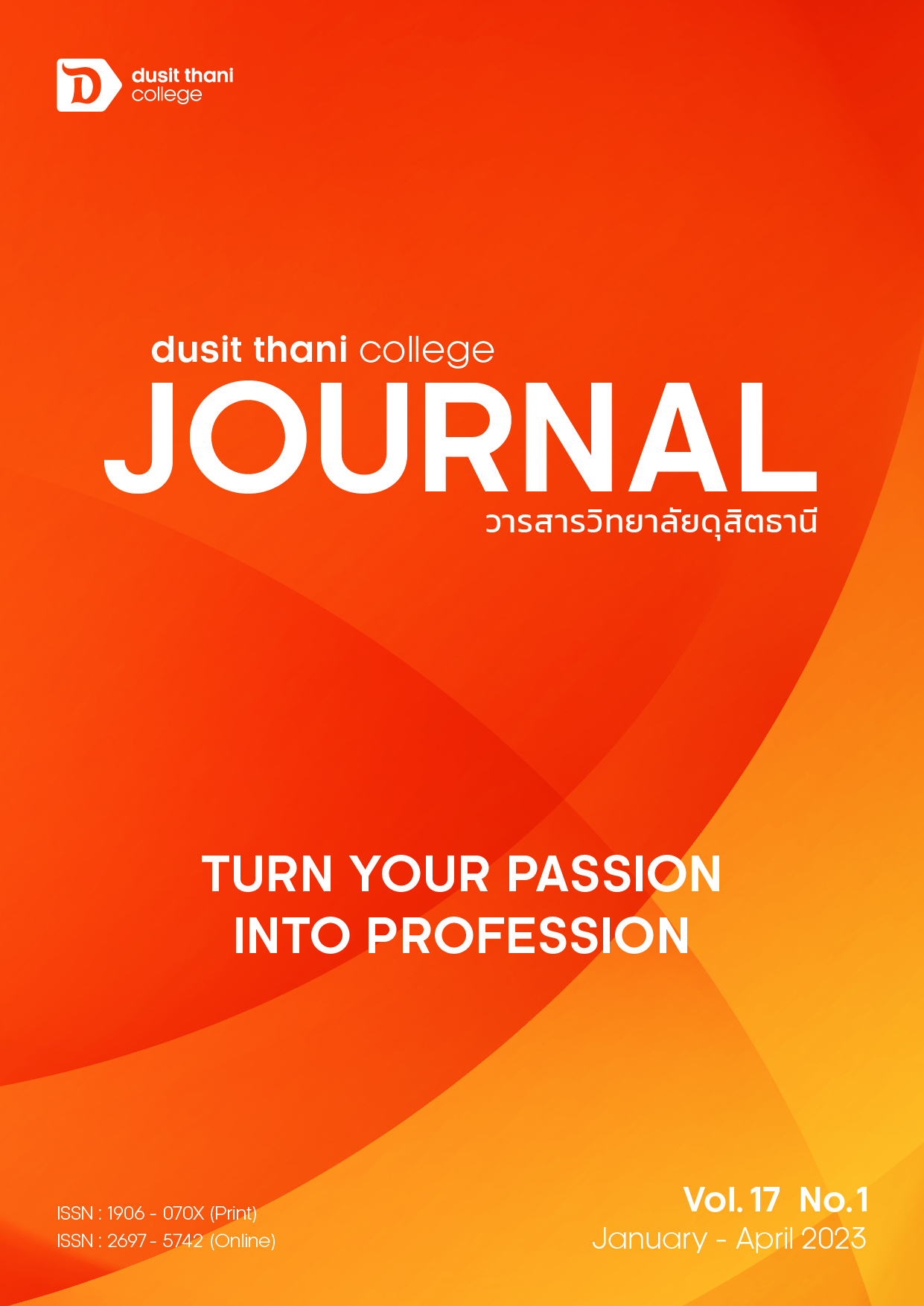Organizing Events to Enhance the Destination Image
Main Article Content
Abstract
Since the transition to the experience economy, events have become increasingly important in propelling the country's economy. Particularly when it comes to promoting the destination image. However, each destination is distinct. It will also result in many forms of occurrences. This article focuses on the integrative viewpoint of each type of event that contributes to the success of consistently enhancing the destination image. The study's conclusion gives the conceptual framework of the event that leads to the success of developing the destination's image. It comprises of 3 perspectives: 1) organizing the event; 2) designing the event by using the identity of the destination; and 3) event professional competency. This information will be useful to event organizers. includes people from the public and business sectors in defining acceptable standards for planning each sort of event in a varied local environment
Article Details

This work is licensed under a Creative Commons Attribution-NonCommercial-NoDerivatives 4.0 International License.
Article Screening Policy
- All research and academic articles to be published must be considered and screened by three peer reviews in the relevant field / article.
- All articles, texts, illustrations and tables published in the journal are the personal opinions of the authors. Editors don't always have to agree. And no responsibility whatsoever is the sole responsibility of the author.
- The articles to be published must never be published. Where did you first publish? And not in the consideration of other journals If the audit found that there has been a duplicate publication It is the sole responsibility of the author.
- Any article that the reader sees as being plagiarized or impersonated without reference. Or mislead the work of the author Please let the journal editor know it will be your greatest blessing.
References
Antchak, V., and Ramsbottom, O. (2019). The fundamentals of event design. New York, United States: Routledge
Brady, M. K., and Cronin, J. J. (2001). Some new thoughts on conceptualizing perceived service quality: A hierarchical approach. Journal of Marketing. 65(3), 34–49.
Candi, M. and Beltagui, A. (2015). Designing services that sing and dance. In Design Thinking: New Product Development Essentials from the PDMA. Hoboken, New Jersey, United States: John Wiley & Sons.
Cardoso, L., Vila, N.A., De Almeida, Â., and Brea, J.A.F. (2019). Music festivals as promoters of tourism destination image. The case of the Vodafone Paredes de Coura Festival. Investigaciones Turisticas. (17), 149-167.
Chiciudean, D.I., Harun, R., Muresan, I.C., Arion, F.H., and Chiciudean, G.O. (2021). Rural community-perceived benefits of a music festival. Societies. 11(2), 59.
Ding, H.-M., and Hung, K.-P. (2021). The antecedents of visitors' flow experience and its influence on memory and behavioral intentions in the music festival context. Journal of Destination Marketing and Management. 19, 100551.
Fakeye, P.C., and Crompton, J.L. (1991). Image differences between prospective, first-time, and repeat visitors to the Lower Rio Grande Valley. Journal of Travel Research. 30(2), 10–16.
Hahm, J., Tasci, A.D.A. and Terry, D.B. (2019). The Olympic games’ impact on South Korea’s image. Journal of Destination Marketing and Management. 14, 1-12.
Jira, B. (2014). Destination Thailand Thailand's index as a destination for tourists. TAT Tourism Journal. (4), 127-142.
Lim, C. and Kim, K. (2018). Experience Design Board: A tool for visualizing and designing experience-centric service delivery processes. Journal of Retailing and Consumer Services. 45, 142-151.
Ministry of Tourism and Sports. (2021). Tourism Economic Review 2(1). Retrieved from ้https://mots.go.th/download/article/article_20210521170904.pdf
Moisescu, O.I., Gică, O.A., Coroș, M.M., and Yallop, A.C. (2019). The UNTOLD story: Event tourism’s negative impact on residents’ community life and well-being. Worldwide Hospitality and Tourism Themes. 11(5), 492-505.
Pimpaporn, W. (2021). Marketing to reach consumers towards the success of operations. event exhibition business. Journal of MCU loei review. 2(3), 62-74.
Preuss, H. (2007). Signaling Growth: China’s Major benefit from Staging the Olympics in Beijing 2008. Harvard Asia Pacific Review. 9(1), 41-45.
Suwadee, B. (2015). Guidelines for developing human resources core competencies in event organizing company for incentive travel. (Master's thesis). Bangkok: National Institute of Development Administration.


